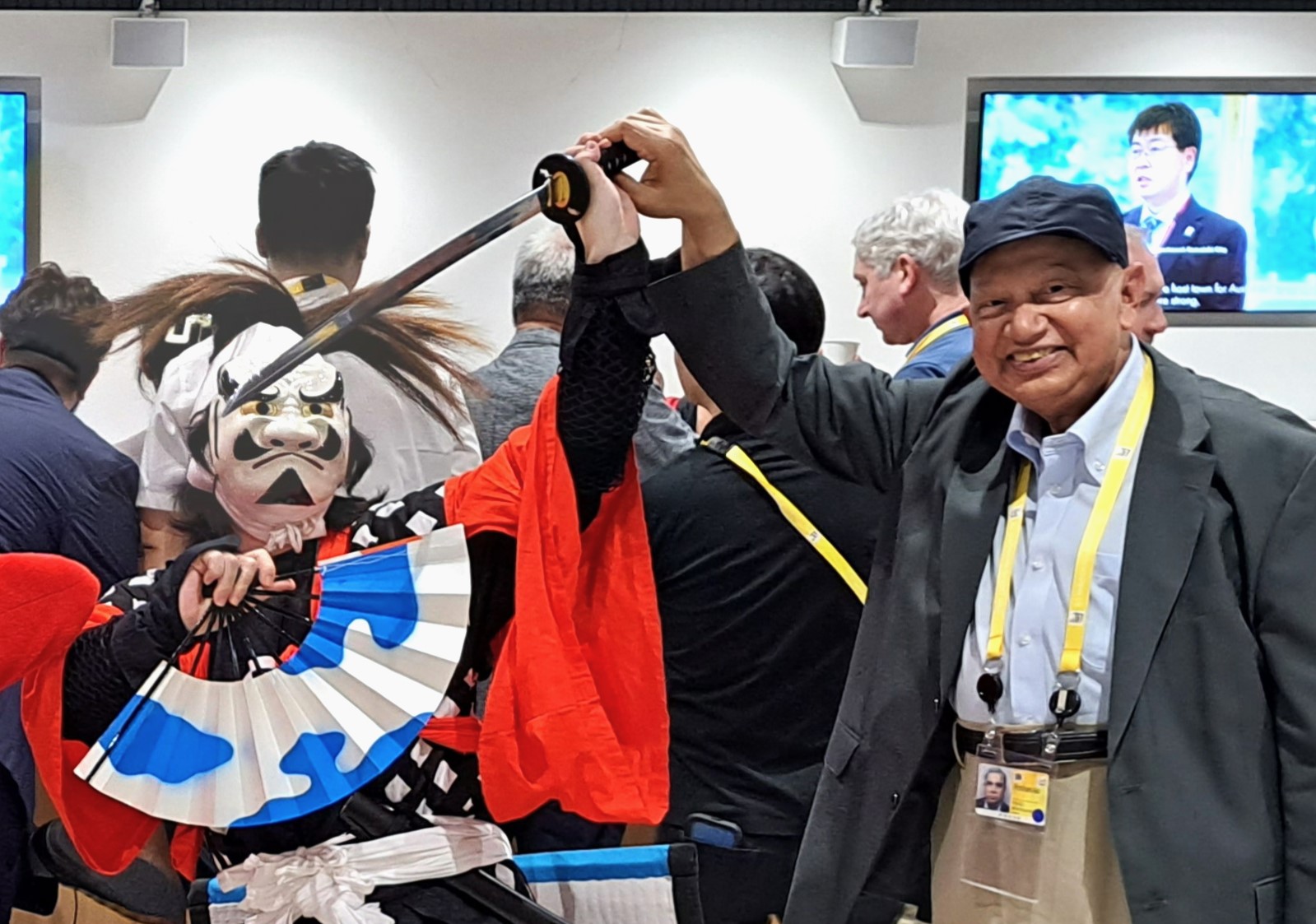Issue:
June 2023
G7 Hiroshima turns into a single-issue summit on Ukraine

With the G7 summit over, all the indications are that Prime Minister Fumio Kishida is in upbeat mood, to the extent that there is speculation he will call a snap lower house election. It can be said that from the host nation’s perspective, the G7 in Hiroshima was a success. Less than a year after Shinzo Abe’s assassination – and just a few weeks after Kishida himself was targeted in an attack - unprecedented security measures guaranteed the safety of visiting dignitaries. Then there was the surprise appearance by the Ukrainian president, Volodymyr Zelenskiy.
However, the people of Hiroshima and tourists visiting the city saw their movements severely restricted. This, though, is the price any location must pay for hosting an event of such international significance. Many Japanese people will remember the summit for Zelenskiy’s presence. His arrival was kept secret until late on the first day of the summit, when media reported that he was due to arrive the following day. Not even the leaders of outreach nations attending as guests had been informed.
Zelenskiy ended up stealing the limelight, while the significance of the presence of leaders from countries in the Global South attracted little media attention. There was controversy, too, over the failure to realize a meeting between Zelenskiy and the Brazilian president, Lula Ignacio da Silva, with the latter claiming the encounter didn’t happen because his Ukrainian counterpart had been late. I don’t think Zelenskiy did himself any favors by later saying he believed Lula had been the more disappointed of the two. In the end, the G7 quickly transformed into a single-issue summit on the war in Ukraine.
This reminded me of a criticism made earlier by the Indian foreign minister, Subrahmanyam Jaishankar, who said that Western leaders think that their problems are also the world’s problems, while challenges faced by the rest of the world have nothing to do with the West. In that sense, I wonder what the point was of inviting the leaders of outreach nations to Hiroshima, where they were completely overshadowed and sidelined by the presence of a leader who does not belong either the outreach group or the G7.
The leaders’ 40-page communique – released a day earlier than expected in anticipation of the final-day focus on Zelenskiy – covered a range of issues: global security, democracy and freedom of speech, economic and financial stability, the environment and climate change, trade, energy, food security, health, education, digital technology, and gender equality.
The text speaks to a determination to address all of these issues – but the problem with G7 is that it has become a minority group in global politics, without the means to pressure its own members to act on the measures they agree to.
The rest of the world, meanwhile, particularly key countries in Asia, Africa and South America, view the G7 as a bloc, some of whose members once invaded their territory and plundered their resources. It seems to me that these former colonial powers use bodies such as the G7 to retain their economic dominance, at a time when their power is visibly waning. As a result, the outcome of the discussions in Hiroshima was little more than an exercise in wishful thinking. That means the summit can only be described as a “success” in the vaguest terms.
That said, Japan did a good job as host. I have covered four G7 summits in Japan: Okinawa in 2000, Hokkaido in 2008 – when Russia was still a member of the G8 – and Ise-Shima in 2016. Of the four summits, Okinawa was the most relaxed in the security sense. It was held a year before the 9.11 attacks, at a time when the world was more tolerant and not overcome with the paranoid fear that everyone should be considered a potential threat. That carefree atmosphere was also present at press events in Okinawa, with journalists able to attend with minimal bureaucratic hassle.
One positive from Hiroshima was the scant use of paper. Unlike other summits, where our desks were awash with sheets of paper, I did not come across a single printed document in the International Media Center. Instead, everything was online. It was a welcome change, and one that should continue at future summits.
Monzurul Huq is a correspondent for Prothom Alo, a leading daily newspaper in Bangladesh. His new book, A Story of My Time, was published by the Cosmos Centre.

